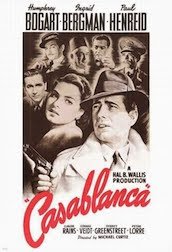(Photo courtesy of freedigitalphotos.net)
Here are my Top 10 picks, in no particular order:
10. Six Years by Harlan Coben.
9. Thankless in Death by J.D. Robb (and the two previous In Death novels that came before this one--loved them all!)
8. Kiss and Spell by Shanna Swendson (and No Quest for the Wicked, which came right before Kiss and Spell in the series.)
7. Etiquette & Espionage by Gail Carriger (the second one in this series wasn't quite as good, but I did enjoy it.)
6. The Weird Girls by Cecy Robson (this one's a novella, but it goes with Sealed with a Curse and A Cursed Embrace, both of which were really great books)
5. Cold Days by Jim Butcher
4. The First Prophet by Kay Hooper
3. Takedown Twenty by Janet Evanovich (and Notorious Nineteen)
2. The Stranger You Know by Andrea Kane (and the two Forensic Instinct books that came before this one)
1. Royal Airs by Sharon Shinn
It was rough choosing just 10 (I know, there are more than 10 in that list, don't get technical with me). Some other really good books I read in 2013 include most of The FBI Thriller novels by Catherine Coulter, Ender's Game by Orson Scott Card, Deadly Forecast by Victoria Laurie, Blood of Dragons by Robin Hobb, Words by Ginny Yttrup, In the Presence of the Enemy by Elizabeth George, What a Ghoul Wants by Victoria Laurie, The Witness by Nora Roberts, and Lady Cottington's Pressed Fairy Book by Terry Jones.
I think I read over 120 book in 2013 (thank you, Goodreads, for keeping such good track of them all for me). I discovered some new authors I enjoy, relaxed with old favorites, and found inspiration in nearly everything I read--even the bad ones. I thought about listing the books I hated (or didn't finish), but that seems a great way to offend a bunch of authors who don't deserve that kind of treatment. Thankfully, there weren't that many. Most of the books I chose this year were pretty good.
Are there any on the above list you would also put in your Top 10? Care to share some or all of your Top 10 in the comment's section? My stack of library books is down to five. That'll take me through next week, but then I'll need more. Give me some awesome recommendations, please.
-Sonja





